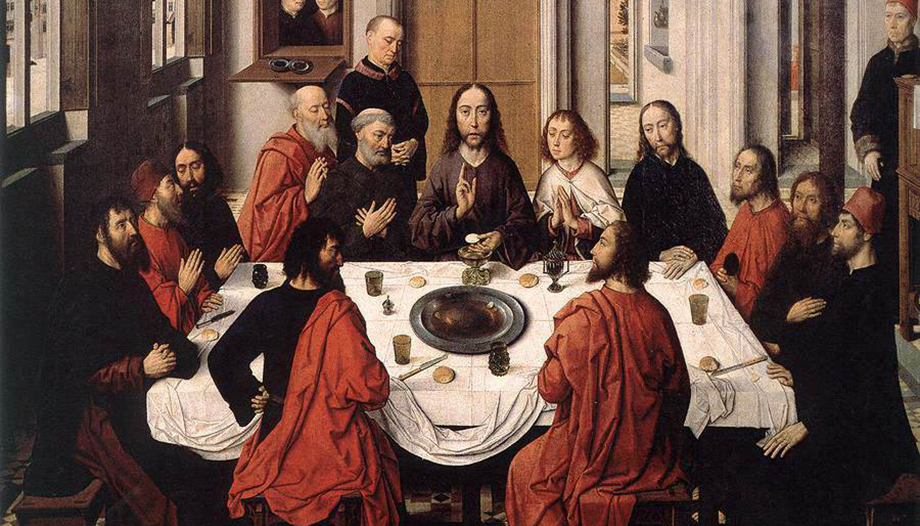The words of Jesus about the mysterious meaning of his glorification and about the new commandment of love are strung between the betrayal of Judas and the denial of Peter, which is revealed immediately afterwards, like pearls in the gold of the crucible of the cross, and the betrayals and weaknesses of friends and the hatred of enemies.
Judas leaving the Cenacle is for Jesus the beginning of his hour. He says the word glorification five times, so that we do not forget it. It is certainly not human glory, because in his passion he will be insulted, condemned, tortured and abandoned by all. By every authority, by public opinion, by people near and far, by Jews and pagans. Only his mother and his friends, with the beloved disciple, will remain to console him.
It is, then, a glory in the divine sense: in that hour the infinite love of the Father who gave his Son for mankind, and the love of the Son who took upon himself every sin in obedience to the Father in order to atone for them all, is mysteriously and forever manifested. With the infinite power of this love lived and manifested, Jesus can reveal and give us his new commandment. As I have loved you.
It is not a "as" of comparison; God's love will always be impossible for us to live it in its infinitude. It is an "as" of foundation: since he has loved us in this way, then we too, through the strength he gives us, can build our mutual love. It is also an "as in the way, an example that teaches us: to lay down one's life, to lose one's life, honor and fame. Overcome and overcome adverse customs. To stoop to death, and a death of the cross.
It is a love linked to his glorification and to his disappearance from our sight: by his passion, death, resurrection and ascension he has won for us the gift of loving us in this way. He has given us the Holy Spirit, which is the love between the Father and the Son. We can live the new commandment of love because the heavenly Jerusalem, as the Apocalypse says, descends to us.
God dwells with us and makes all things new. God, who wipes every tear from our eyes, gives us the grace to understand and accept, as Paul and Barnabas taught the Christians of Antioch, that we enter the kingdom of God. "through many tribulations".
The cross and resurrection received in baptism and absorbed in our life allow us to approach the new commandment and try to live it, as a reciprocal love that spreads continuously and extends in concentric circles, and multiplies itself, freely, that seeks nothing for itself, that conquers sin and death. Love that identifies the community of believers and makes it bear fruit and grow.
Homily on the readings of the Fifth Sunday of Easter
The priest Luis Herrera Campo offers its nanomiliaa small one-minute reflection for these readings.









